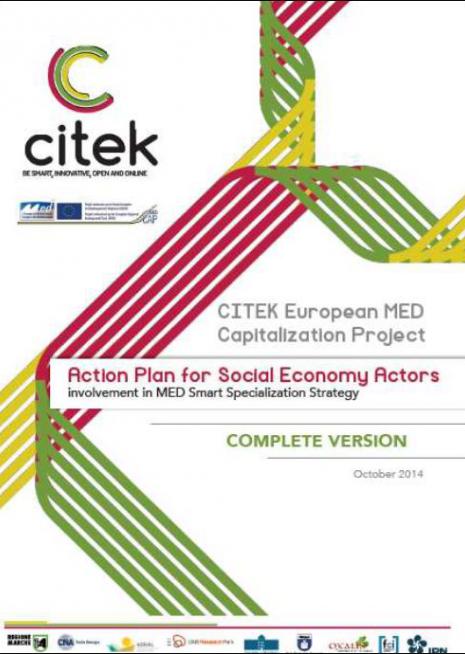
For a better integration of the social economy in innovation strategies in the Mediterranean
In the frame of CITEK - a European project which aims at promoting the setting up of an innovation system in the Mediterranean area - an Action Plan was launched in 2014 in order to improve the inclusion of social economy actors in this system. It contains a series of proposals made to achieve the embedding of this sector into future regional innovation strategies.
As the study points out, the social economy is significantly important for the European Union:
- 10% of all enterprises belong to this sector (2 million enterprises employing more than 14 million people);
- The employment rate increased by 26,8% in the sector between 2002/2003 and 2009/2010 (+ 45,4% in the new member States);
- 1/4 of new enterprises created in the EU each year is a social enterprise.
However, this weight varies between the Mediterranean countries – more than 9% of employment in France and Italy for example, against 0,59% in Croatia and 2,67% in Greece. Besides, the concept of social economy is not accepted the same way according to the countries – being not well recognized for instance in Croatia and in Slovenia.
A survey was carried out in the partner regions of the European project CITEK (Rhône Alpes Region, Marche Region, Province of Barcelona…), in order to evaluate the importance of the social economy in the Regional Innovation Strategies for Smart Specialization (RIS3). The conclusion is that the social economy is increasingly taken into account in regional strategies, but still has a long way to go. The extent of the sector varies from one region to another and its role in regional development and innovation is not yet complete. Moreover, social economy actors are not fully aware of RIS3 opportunities mainly because they are not included in the drafting process as collectives or agents.
After having shown in many ways its potential contribution to regional innovation strategies as well as its main weakness regarding to its participation to RIS3, the Plan details action ideas for a better integration of the social economy in these strategies. It consists fundamentally in 4 recommendations to European, national, regional authorities, but also to a series of other actors like research centers, clusters, associations of cooperatives, social enterprises. These proposals stress the importance of supporting and associating the actors of the social economy – involving them in the process of innovation – and developing new business models like clusters and associated research labs.

